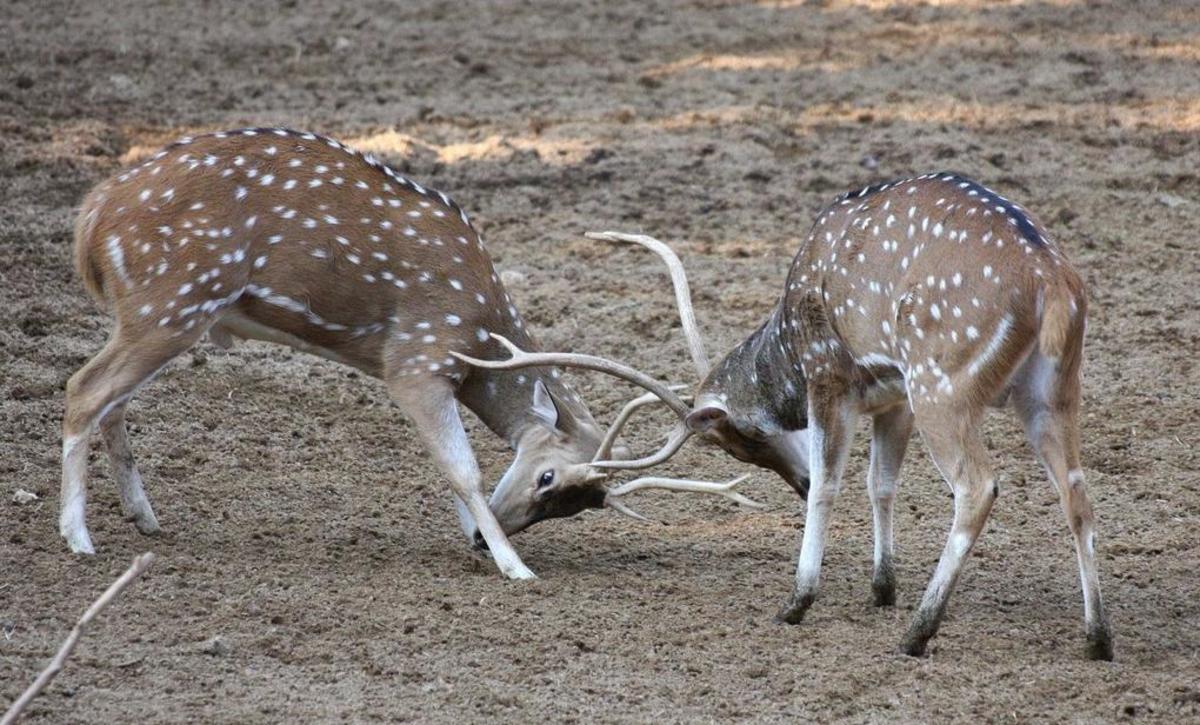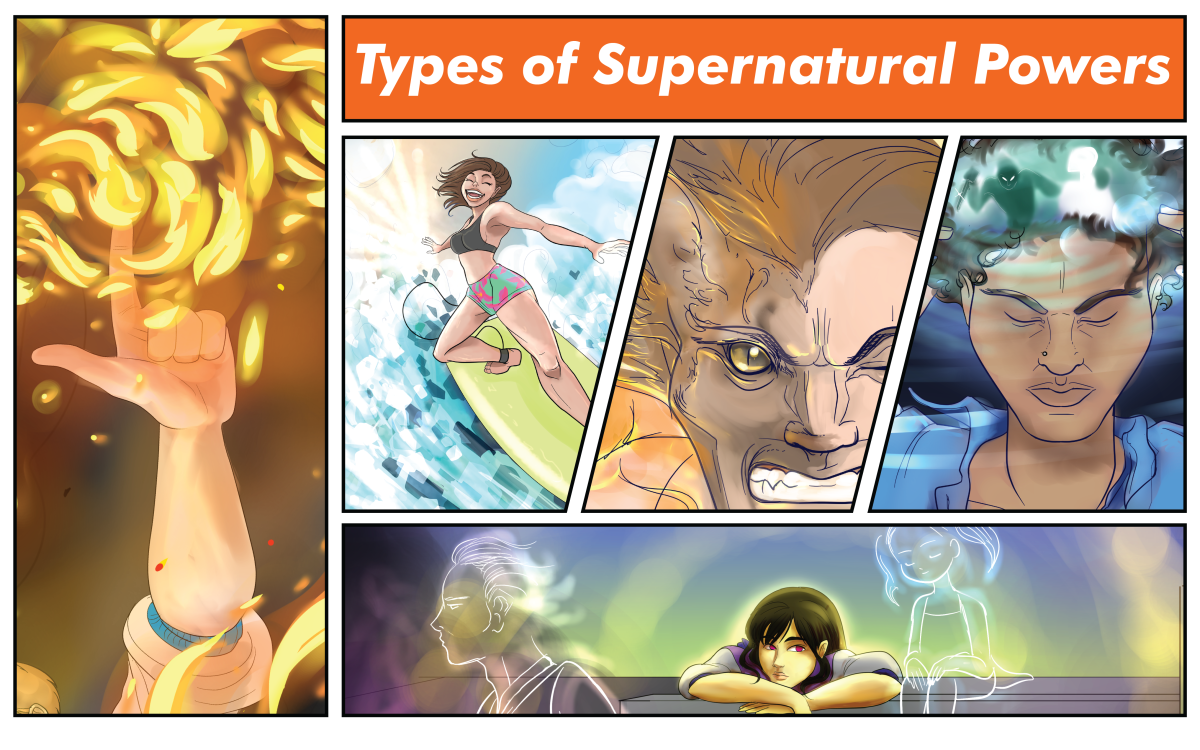The Road To Becoming a Warrior

The road to becoming a warrior
In many shamanistic traditions the warrior is not like a soldier at all. What is meant by the word warrior is one who is impeccable. Samurai warriors strived for a perfection of self and of spirit not just of their ability to fight. The Buddhist monks who invented many of the martial arts were perfecting all aspects of themselves, including the ability to survive and defend themselves. Martial arts are not just a way to fight, they bring with them rules of conduct and spiritual lessons for a way of life.
The shamanistic traditions from all over the world give us tools with which to accomplish inner peace and harmony. They include ways of perception that clarify life for us. They naturally included ways in which to treat others.
In my book: The Seekers Guide, I list several of these tools in point form. I have also written about some of them in other hubs.
Recently, while writing another book I became reacquainted with an author whose books I read when I was a teen. His name is Carlos Castaneda. At the time I read three of his books including: “A separate reality.” I found out that he went on to write twelve books and develop his own religion based on Native American warrior tradition.
He bases his world view on the Toltec traditions. The Toltec culture ended around year 1000 CE and was taken over culturally buy what would become the Aztecs. From these teachings 5 points emerge. They are called the five agreements.
1) Be impeccable with your word
2) Don’t take anything personally
3) Do not assume
4) Do your best
5) Don’t believe anything
They look on the surface to be pretty straight forward and simple, and they are. Deceptively so.The points I made in “The Seekers Guide” are:
1) Don’t assume anything.
2) Forget the old ideas for now and be open to new ideas, but fall to none of those either. Don’t marry any ideas, no matter how good they might sound.
3) Be ready to drop any idea at a moment's notice if it turns out to have no validity. Better to know nothing than to believe nonsense for the sake of feeling good.
4) Accept what is, even if you don't like it. You may not like that the earth is round, but get over it. Liking has nothing to do with truth. Something either is, or is not true. Your feelings about it do not in and of themselves change anything.
5) Be only interested in the truth, no matter what it turns out to be.
6) Study the patterns of existence. Not the interpretations
7) Don’t believe anything at all.
8) Expect as little as possible.
9) Try to embrace change
10) Don’t be afraid to say you don’t know.
In my list I begin with: Don’t assume anything. It comes third in the Toltec list. But the order is not important. The fact is, assuming is known even in popular culture as a thing to be avoided. We all know the cultural saying: When you assume, you make an ass of u and me. It is an obvious truth. When we assume, we act on those assumptions and are in real danger of causing all kinds of conflict for ourselves and others needlessly. We all know that and yet it is something we do constantly. We are quick to jump to conclusions.
We know that jumping to conclusions is the wrong way to go about things. But we so often do it anyway.
The definition of insanity has often been sighted as: Doing the same thing over and over again and expecting a different result. Assumption is real problem. Assuming nothing is a tool. When we do not assume, we investigate and try to discover the truth before we act. The more facts we have the better.
Do your best: I didn’t include this in my list because it is so obvious that it is even the motto of the Boy Scouts. And yet I should have. Our best is the best we can do. But we often fall far short of doing our best all the time. We are impatient. We are often lazy and say ”That’s good enough” when we really don’t think it is.
But all we can do is our best and if we do we can forgive ourselves if things go wrong. Self forgiveness is an important aspect of becoming a warrior or an enlightened person, or even a person who wants to feel good in their own skin.
We all walk around with needless guilt. A lot of it is placed on us by others. This is where the Toltec idea of agreement comes in to play. When a person tells you your failings in an unkind way, it makes you feel bad. A parent might tell a child they are lazy and will amount to nothing. The child begins to believe that and act as if it is so. So the child has made an agreement with the parent that they are indeed lazy.
In Toltec teachings this is a poison given to the child which it accepts and eats. It is a metaphoric way of sayings but it gets the point across very well.
Kids in school often tease other kids. They call them names and make fun of them. If the child takes these thing to heart they are accepting the poison and agreeing to eat it. A child might be singing all the time and when they go to school one of their classmates may be fed up with listening to them and tell them they have a bad voice and should stop singing. If the child is hurt and takes it to heart, of if a parent says it, they may stop singing forever and be the worse for it. They may resent the parent or carry hate for the classmate.
This is why the first point on the Toltec list is: Be impeccable with your word. It is interesting to note that the word impeccable means without sin. Explained from the Toltec perspective, the warrior does not offer others poison and does not accept it. They have broken the old agreements and removed the poison from themselves.
This relates well to my point 2, 3,and 4. Forget the old ideas, don’t fall to the new ones, be ready to drop any idea if it turns out to be fruitless, or in some cases poison, and accept what is.
One of the hardest thing to do for a human is to forgive themselves. Another animal may suffer the consequences of their action once, but they don’t blame themselves for it continuously. We humans do. Our natural instinct when we see injustice is to punish for it. When we see it in ourselves we often punish ourselves. But it doesn’t end there. While society only punishes once for a crime because we know that keep punishing someone for the same crime is not just, we punish our selves continually. We run around with guilt that not only we put upon ourselves but also the guilt others place on us.
This is why the second Toltec point is: Don’t take anything personally. If you accept what others say about you then you have taken it personally. You have allowed it to shape you and to poison you. If it is true do not punish yourself for it, correct it. Forgive yourself for it. But that does not mean ignore it. Find what you perceive as faults within yourself and correct them. As long as you do your best you can do no more. If you do your best you have no reason to punish yourself or feel guilt.
If it is not true then it is to be ignored and laughed at. Do not accept the poison others offer.
All these points interrelate. The fifth point is: don’t believe anything. This is directly related to taking something personally. When you believe something you make it part of yourself. How much more personal can it get? When you believe you are good for nothing you are good for nothing. You have made it part of yourself. You have taken it personally. Only when you break that agreement can you become good for something.
Failure is not failure. It is lesson revealed, a truth found, and opportunity to learn and change what needs to be changed.
But the Toltec idea of don’t believe anything is slightly different from my own. They are talking about concrete ideas and models. Do not believe what you have been told about yourself. Do not hold beliefs you can not verify as fact. But the way they suggest verifying fact is through feeling. If you feel it is right then it is true.
My concept of disbelief goes father. There is no reason to believe anything at all. You should certainly accept facts. But to believe in them is not required. They are facts whether we invest belief in them or not. They only require guarded acceptance. Why guarded? Because we do make mistakes and sometimes a fact may not be a fact in all circumstances.
To believe speculative ideas beyond the broad definition of the word meaning to hold an opinion of probability rather than a conviction of fact, is folly at best and stupidity at worst. There is literally no reason to believe anything at all. The response to speculation is best served by the words: wait and see.
Impeccability, as I said, means to be without sin. In my world view as well as in the Toltec world view, the greatest sin is the sin against self. To be without sin is to be a human who is at peace with themselves and who does not do things which are against that peace or the inner peace of others.
But the way to forgiving yourself and others who have trespassed against you is by taking full responsibility for your actions. It is you that accept the poison others give. It is you that allow yourself to eat it. It is not their fault. You did not ask to be born so can take no blame for the consequences to your father or your mother’s life for the actions they took. You may feel empathy for their plight but not guilt.
It is not their fault that they were given poison so nor is it actually yours for taking it from them. Taking responsibility does not mean you must feel guilty about it for the rest of your life. Fix it, then forgive yourself and have the strength not to do it again. It is no one’s fault. The warrior does not judge and does not blame. For blame and judgment are the poison we give each other and ourselves through ignorance. But they full responsibility for their acts, and if they go wrong, try their best to make them right.
While feeling is not the way to prove fact, it is the way to know whether or not you are going against yourself. Bad feeling denote a problem that requires resolution. Good feelings denote a fulfillment of needs. These are our emotions and we need them. But they can be controlled without being repressed. In fact repression of them is not possible. They will always manifest in some way. Even as tick or some suggest all manner of diseases both mental and physical.
From experience we can pretty much all say that doing our best makes up feel good. Doing for others often makes us feel good. Not taking things personally makes us feel good. All the Toltec points as well as those I put down, are designed to help people become warriors. To feel good in their own skin and thereby reduce the conflict between themselves and others.
As simple as the points may seem they are hard to adhere to. But all ways to personal enlightenment and inner peace of mind are hard roads, and all of them overlap their teaching though the language used to explain things may be very different. But quests for truth and peace are worth the effort. We are all worth the effort. Be a warrior and be as free as you can possibly be as a human being.









